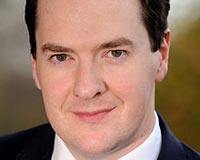 It is no surprise that ahead of next week’s Autumn Statement industry bodies have started piping up about business rate reform again.
It is no surprise that ahead of next week’s Autumn Statement industry bodies have started piping up about business rate reform again.
Next week’s update on the government’s economic and spending plans will be the fifth and possibly final Autumn Statement for chancellor George Osborne. But is he really likely to turn the sector’s long-called-for wishes into reality?
Shopping centre body BCSC believes that the “archaic” rates system is harming the high street directly. The body is calling for more regular revaluations of retail property to ensure that business rates more accurately reflect the current market and are fairer to retailers.
It proposes exempting all businesses with a ratable value of less than £12,000. These businesses, says the BCSC, account for 64% of all assessments but only 6% of income generated for the government. Exempting these companies would drastically reduce the workload of assessors, freeing up time for more revaluations.
The BCSC and British Retail Consortium are also calling for an extension of the cap on the business rates multiplier at no more than 2%, as implemented last year.
Bryan Johnston, external affairs adviser at the British Retail Consortium, says: “With business rates being the most popular issue raised with the Treasury ahead of next week’s Autumn Statement, the chancellor is likely to roll forward the rates support package, including the 2% cap. Retailers are keen to learn if he plans to go further for smaller businesses by taking them out of the system altogether.”
However, Jerry Schurder, head of business rates at Gerald Eve, reckons that asking for an extension of the cap is “perverse” because it means businesses are still paying more year-on-year.
Schurder argues that the cap is largely symbolic as without it the multiplier would be only 0.3% higher. He believes that a freeze would be much more appropriate and helpful to businesses.
Schurder warns that there is a bigger shock in store for many business owners when it comes to rates.
He says there are many properties that saw increases at the last revaluation, but because their rates were phased, have never paid the full amount. With the phasing period coming to an end without an accompanying revaluation, some 67,000 businesses will be facing massive hikes in rent.
Of that, 5,000 face rate rises of at least 33%, some much, much more. One Bristol newsagent, says Schurder by way of example, will be hit with a rise of 534%.
“If this problem is not addressed in the statement, the government will be at risk of some pretty adverse headlines and bad feeling in the property industry, with not long left until the election,” says Schurder.
If there is a statement on rates, he believes government will use the Localism Act to put the responsibility of dealing with this problem in the hands of local government.
Ratings specialist CVS has its own ideas about what government could do to ease the burden of rates.
It believes more information needs to be disclosed on ratepayers’ liabilities and calls for rates to be linked to the consumer price index rather than the retail price index.
“Reform should be about creating a less adversarial arrangement that is more transparent, equitable, and which doesn’t leave businesses confused and frustrated about business rates,” says chief executive Mark Rigby.
While there are conflicting opinions within the industry about the changes that need to be made to the rates system, and the feasibility of them, what is clear is that something needs to be done.
By the next election business rates will be the fifth-highest tax in the UK in terms of net receipts and the highest tax rate, at just under 50%. Reforms would be a huge crowd-pleaser in an industry Osborne often claims to be a big supporter of. All eyes will be turned on him on 3 December to see if he will act.
“As we reach the end of the current parliament, it is time to listen to what the sector needs,” says Edward Cooke, director of policy and public affairs at BCSC. “The Administrative Review on business rates was a positive move, but we need government to go much further and review the way tax is set if we are to see meaningful change to an outdated system.”
Property’s wishlist
Although business rates were the number-one priority for real estate, there is plenty more that the sector wants Osborne to take action on.
The British Property Federation has been lobbying government to reassess stamp duty land tax. It estimates that introducing seeding relief for SDLT could boost the UK economy by £117.6m and generate around £42.3m pa in tax revenue.
Several industry bodies have called for support plugging the skills gap across all aspects of property. Housing and planning minister Brandon Lewis and Labour MP Emma Reynolds have both recently called for more to be done to encourage young people and ex-armed forces members to enter the construction industry.











